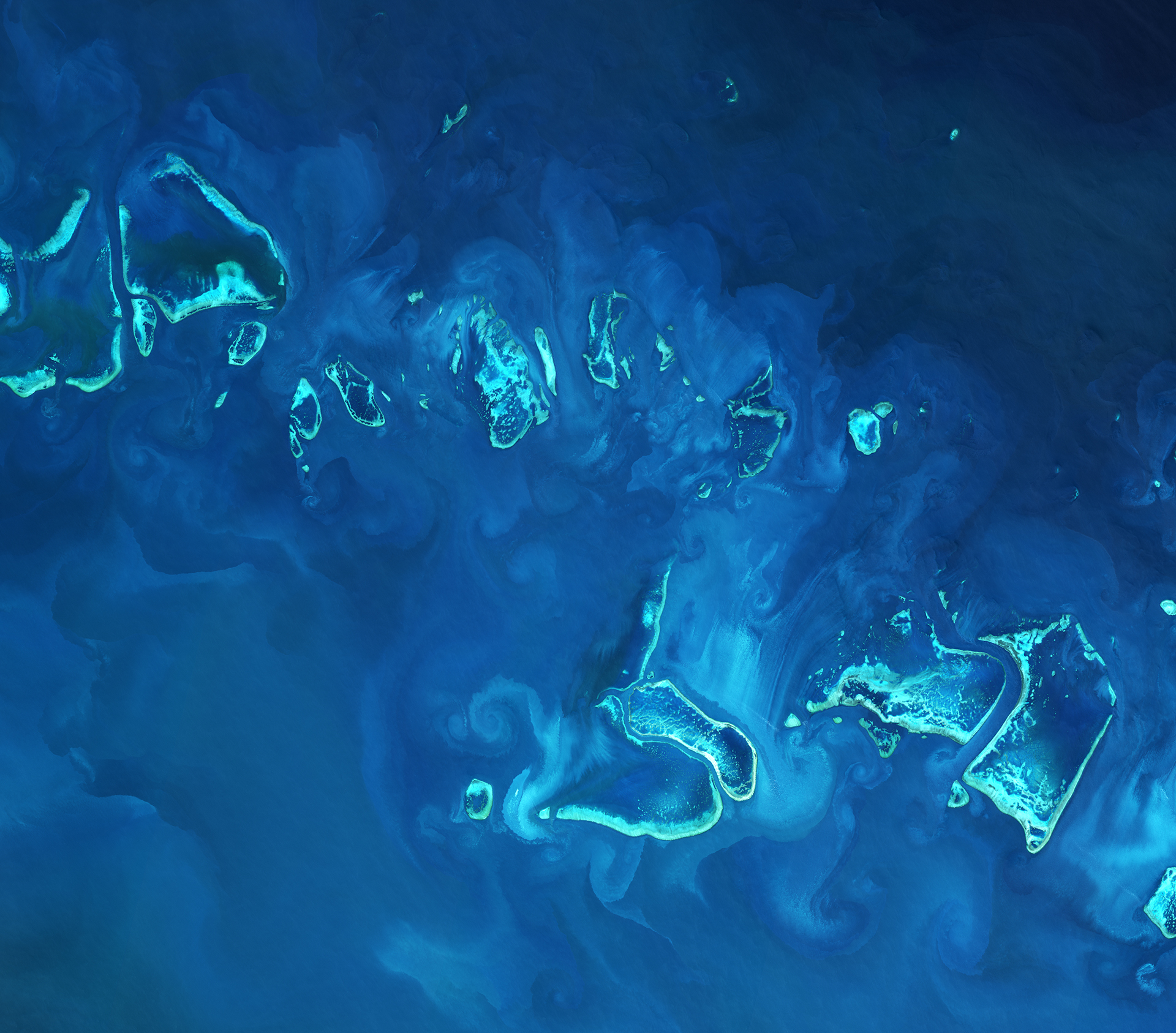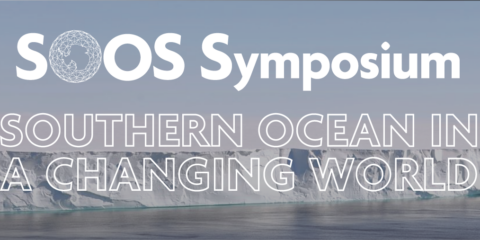Latest news
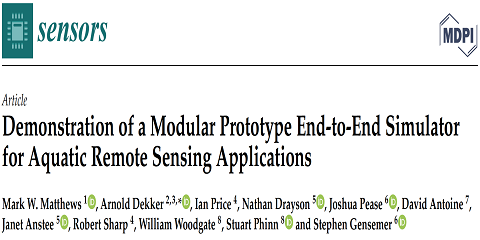
The end-to-end satellite mission simulator got its way for publication in Sensors.
September 2023
The SmartSAT CRC-funded project named “AquaWatch Pathfinders: Earth Observation Sensor Design Simulator Testbed (End to End Simulator)” was completed in 2022. This project was a collaboration with Cyanolakes Pty Ltd (https://www.cyanolakes.com), CSIRO, ANU, UQ and SatDek Pty Ltd, and was part of the development of the Aquawatch Australia mission (https://www.csiro.au/en/about/challenges-missions/aquawatch).
The project lead, Mark Matthews, had led publication of a demonstration study using the simulator, published in Sensors (https://www.mdpi.com/1424-8220/23/18/7824). In this work, RSSRG’s role was to define and run the numerical simulation of radiative transfer needed for the forward part of the simulator.
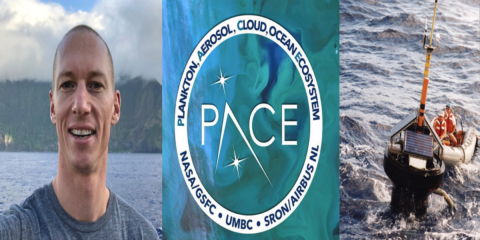
RSSRG welcomes Andrew Gray, Marine Optical Engineer for our new MarONet project.
July 2023
In July, we welcomed Andrew Gray, moving to Perth from Hawaii to become the lead engineer on our new MarONet project.
MarONet stands for “Marine Optical Network” and will consist in deploying a specifically-designed optical buoy off Perth, in support to the “System Vicarious Calibration” of the upcoming NASA PACE mission (https://pace.gsfc.nasa.gov/) (“Plankton, Aerosol, Cloud and ocean Ecosystem”).
The optical system has been developed under leadership by the US NIST in particular (https://www.nist.gov/news-events/news/2023/01/ocean-color-system-gets-refresh-allowing-more-precise-and-accurate). It is a unique prototype allowing extremely accurate and stable measurement of the ocean reflectance, which is the primary product the PACE mission will derive, and from which multiple parameters of the marine ecosystem can be inferred.
Welcome Andrew!
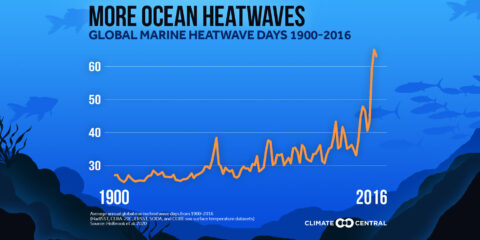
RSSRG was awarded funding as part of a project on Marine Heat Waves (MHW) funded by the WA state Government
July 2023
The WA Government, through its Department of Jobs, Tourism, Science and Innovation (JTSI), has selected a 4-year project involving four Perth Universities (UWA, lead, plus Curtin, Murdoch and Edith Cowan), and developed as part of the WA Government will to answer the challenges of the United Nations “Decade of Ocean Science for Sustainable Development (2021-2030)” (https://oceandecade.org/).
RSSRG’s role will be to use satellite Earth Observation to characterise past MHWs off WA and to analyse their large-scale drivers. This work will be carried out by a PhD student under supervision by Prof. D. Antoine.
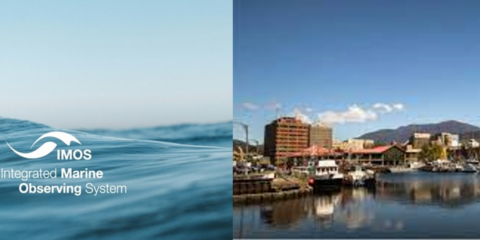
As every year, RSSRG have participated to the annual planning meeting of the Australia Integrated Marine Observing System, to which we contribute since 2014
February 2023
This year the meeting was held in Hobart, Tasmania, 20th – 23rd February 2023.
As indicated on the meeting web page (https://imos.org.au/calendar/events/annual-planning/annual-meeting-2023), “The intent for this meeting is to provide updates on key topics and elements of the program, as well emerging NCRIS processes for the years ahead. The IMOS Governing Board will open the 2023 meeting with a discussion on the national research landscape, national challenges, and the relevance of IMOS. We will also discuss the emerging topic of observing in Sea Country and what the IMOS partnership should play.”
Full agenda here.
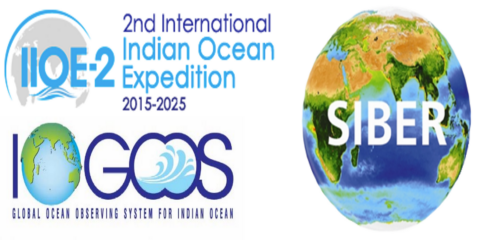
RSSRG attended the 2023 International Indian Ocean Science Conference (IIOSC2023)
February 2023
The 2023 annual meetings of IIOE-2 Steering Committee, IOGOOS, IndOOS Resource Forum (IRF) and SIBER were held in Perth 6-10 February 2023, at the Indian Ocean Marine Research Centre (IOMRC).
Chandanlal Parida, research associate with RSSRG, and Prof. D. Antoine, RSSRG lead, attended various sessions in order to keep existing connections with these programs alive and to develop new ones.
Our Capabilities
The RSSRG has access to a number of research facilities, as described below

Dark room radiometric calibration
RSSRG calibration facility allows optical instruments to be calibrated against a National Institute of Standards and Technology (NIST) source.
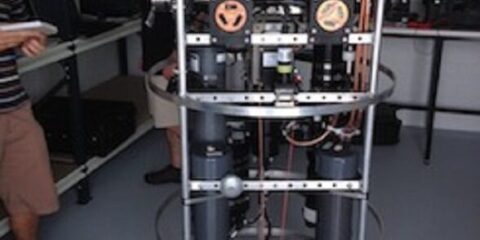
The Thetis autonomous platform
A unique set of optical and oceanographic equipment has been put together onto a profiling platform, as shown of the left here.
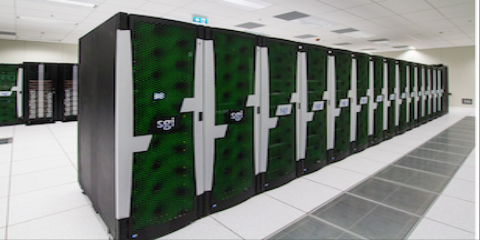
Access to the Pawsey supercomputing centre
RSSRG have access to the Pawsey Supercomputing Centre to processing large quantities of satellite remote sensing observations.
